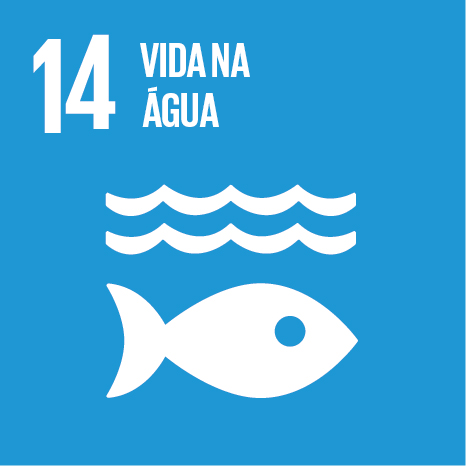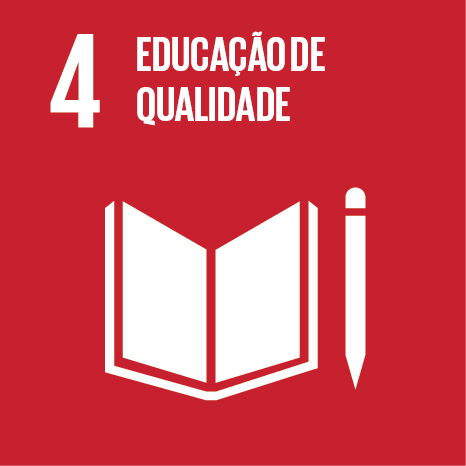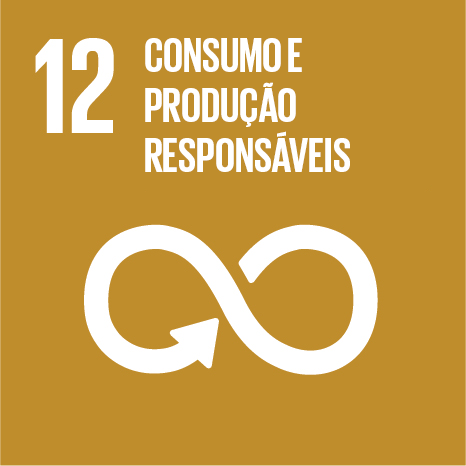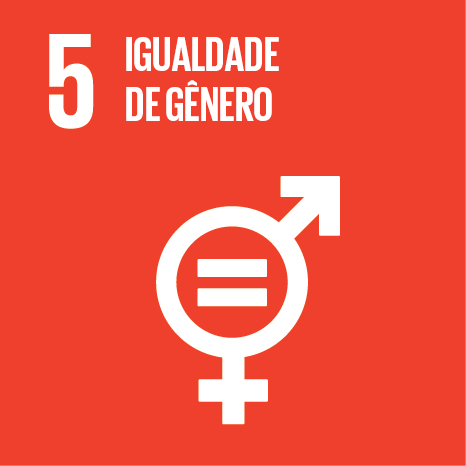The PPGOB has historically contributed to the training of highly qualified human resources and with research that has subsidized public policies for ecosystem conservation and sustainable use of marine resources in Brazil. Thus, the activities developed by the PPGOB are directly or indirectly aligned with several of the goals proposed in the Sustainable Development Goals (SDGs) defined in Agenda 2030 by the United Nations (UN) in 2015 (https://nacoesunidas.org/pos2015/agenda2030/).
In particular, we can highlight the most direct alignment of the PPGOB with the following SDGs:
 SDG 14 - Life in Water: Conserve and sustainably use the oceans, seas, and marine resources for sustainable development.
SDG 14 - Life in Water: Conserve and sustainably use the oceans, seas, and marine resources for sustainable development.
This, of course, is the goal with which the PPGOB has greater adherence, due to the strong relationship of the research conducted in the Program with the goals established in this goal. Here we highlight studies focused on the management and conservation of marine and coastal ecosystems and resources, including direct contributions to the formulation of measures for the conservation of endangered species and the management of fishery resources. The activities carried out at the PPGOB also contribute to the monitoring of marine biodiversity, including changes in habitat use, marine pollution, an increase of scientific knowledge, development of research capabilities, and technology transfer related to Marine Sciences.
 SDG 13 - Action against global climate change: Take urgent action to tackle climate change and its impacts.
SDG 13 - Action against global climate change: Take urgent action to tackle climate change and its impacts.
Several PPGOB actions are related to target 13.3, such as studies on the possible impacts of climate change on biodiversity and the availability of fisheries resources. Furthermore, in general, the PPGOB contributes to improve education, raise awareness, and human and institutional capacity on climate change mitigation, adaptation, impact reduction, and early warning.
 SDG 4 - Quality Education: Ensure access to inclusive, quality, and equitable education and foster lifelong learning opportunities for all.
SDG 4 - Quality Education: Ensure access to inclusive, quality, and equitable education and foster lifelong learning opportunities for all.
The qualified formation of human resources and the elaboration of selection calls in accordance with the policies of the Affirmative Action Program for Graduate Studies (PROAAf-PG) at FURG (more details in item 7.1), contribute significantly to four goals of this objective: 4.4. Substantially increase the number of youth and adults who have relevant skills, including technical and professional skills, for employment, decent work, and entrepreneurship; 4.5. Eliminate gender disparities in education and ensure equal access to all levels of education and vocational training for the most vulnerable, including persons with disabilities, indigenous peoples, and children in vulnerable situations; 4.7. Ensure that all students acquire the knowledge and skills necessary to promote sustainable development, including, among others, through education for sustainable development and sustainable lifestyles, human rights, gender equality, promotion of a culture of peace and nonviolence, global citizenship, and appreciation of cultural diversity and of culture's contribution to sustainable development; 4.c. Increase the pool of qualified teachers, including through international cooperation for teacher training, in developing countries.
In addition, some PPGOB actions and strategies also contribute to the following SDGs
 SDG 12 - Responsible Consumption and Production: Ensure sustainable consumption and production patterns.
SDG 12 - Responsible Consumption and Production: Ensure sustainable consumption and production patterns.
Here we can highlight some goals such as 12.2. Achieve sustainable management and efficient use of natural resources, and 12.a. Support developing countries to strengthen their scientific and technological capabilities to shift to more sustainable patterns of production and consumption.
 SDG 5 - Gender equality: Achieve gender equality and empower all women and girls.
SDG 5 - Gender equality: Achieve gender equality and empower all women and girls.
PPGOB's actions have always sought to maintain an inclusive and equitable environment, and in this sense, we are aligned with target 5.5, to ensure women's full and effective participation and equal opportunities for leadership at all levels of decision-making in political, economic, and public life.
